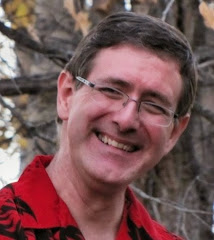Our scriptures today talks about what we can learn from
nature. Jesus said, look at the flowers and birds and learn from them. They do
not worry about things they cannot control.
Today we also have with us some pets from different houses. Did they worry as they came to church? Did they wonder if they were going to the
vet? Did they expect they would be given
shots or medicine for worms? Did they
think they were going for a haircut if they are shaggy critters? If someone brought a snake today, would the
car trip cause them anxiety? Probably
not! Just like our sunflowers, they
don’t worry, and they grow to the best of their ability given where they are
and who they belong to. Belonging, for
our pets and for us, is very important.
I loved reading Dodie Smith’s “101 Dalmatians” as a child because she
talked about the humans being the pets of the dogs! Pongo and Missus, the
heroes of the adventure, were the ones who made sure their human pets got out
for walks regularly, and even made sure that their human pets Mr. and Mrs.
Dearly met each other and fell in love.
Clearly, the dogs were in charge of their pets and found it amusing to
let the humans think it was the other way around!
I like to think our Genesis 2 passage is very similar to
the flip side of 101 Dalmatians. It too
shows the diversity of scripture. When I
meet someone who is genuinely curious about my relationship with scripture, who
tells me that they ‘know’ that scripture is infallible, I often ask them which
came first, humans or animals? In
Genesis 1, God is referred to in Hebrew as ‘Elohim’, which we often translate
as God plain and simple. In Genesis 2
there is a switch from Elohim to Yhwh, often translated as The Lord. Elohim makes the world in seven days,
beginning with the chaos of creation and sorting out the light from the dark,
first making day, then night, followed by seas and land, sun and moon and so
on. Humans end up being made last, like
the cherry on top of the sundae, the finishing touch.
Now, if you ask someone who ‘knows’ scripture is infallible,
which came first, animals or humans, they will invariably say animals of
course. That’s when I spring the
trap. “Then how come in Genesis 2, it
says that God made humans first, then plants, then animals?” One person I asked this of said that I was
obviously reading the wrong bible, because that wasn’t what was in her bible. But it’s there all right. And Yahweh God gets down on their hands and
knees and plays in the earth, Adamah in Hebrew, to make human, Adam. But a single mud creature is rather boring
and rather bored, so Yahweh starts playing some more, making plants to pretty
up the dirt. That’s better, but still
something is missing for the dirt creature.
Yhwh gets their hands even more muddy, pulling up animals the way I
imagine a potter pulls up pots on a wheel.
This is no “Let there be Light” grand pronouncement by Elohim who sounds
like a cross between a wizard and a magician and probably very clean and neat
to boot. Diversity is created. But mud creature still is not quite able to
relate. Despite the diversity to choose
from, mud creature needed something more.
So Yhwh pulled a piece out of earth creature and created Ish and Isha,
or male and female. Isha doesn’t get a
name until Chapter 3, after the apple is eaten, and she is called Chavvah
(pronounced hava), which means breathe or life, or even community or town. So we have dirt and air from which all
humanity comes.
I think there is a beauty in this story, the celebration of
diversity, and the idea that possibly just possibly, earth creature was without
gender at first. Gender was created
almost as an afterthought here, and even in Genesis 1, God created male and
female in God’s own image so there’s a strong sense that God too is beyond
gender. Both stories celebrate the
creation of diversity and variety. Both
stories see that diversity as a good thing.
Elohim saw creation as good, and Yhwh wanted good for the mud creature
and so created companions.
We humans struggle with diversity. We often assume that all humans will have the
same body parts, will have the same capabilities and the same potential. But just like our sunflowers, some grow
strong and big and beautiful and sturdy, and some do not. Some have tragedy
that stunts their growth. Some grow to be independent adults, and some need
community help to live their lives. Blue
Heron in Athabasca educates us in the broad diversity of human shapes and
capacities. As a church, how do we
welcome those who look like us but do not have brains wired like ours? With curiosity, gentleness, love, and
empathy. Meeting everyone, even the
littlest ones as created in God’s own image, an image of amazing creativity and
diversity. And they are, we are all
created as Good in God’s Eyes. Thanks be
to God!





